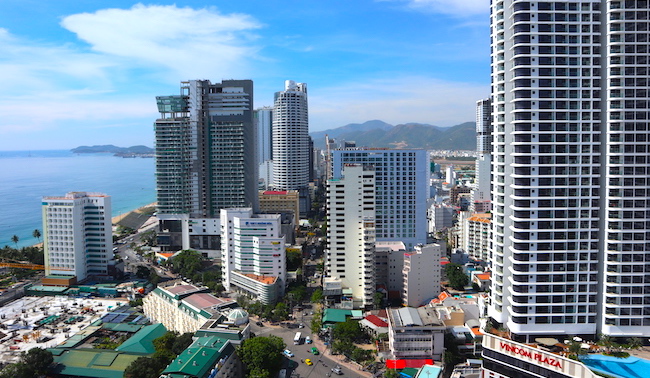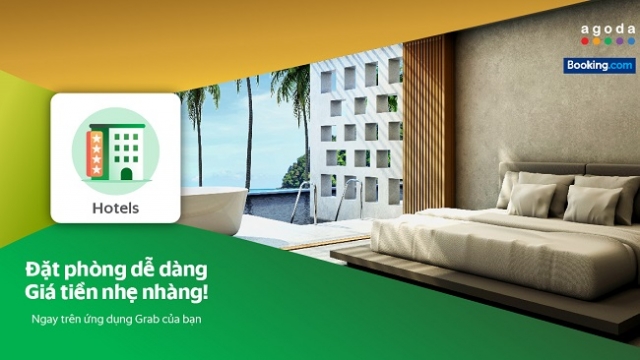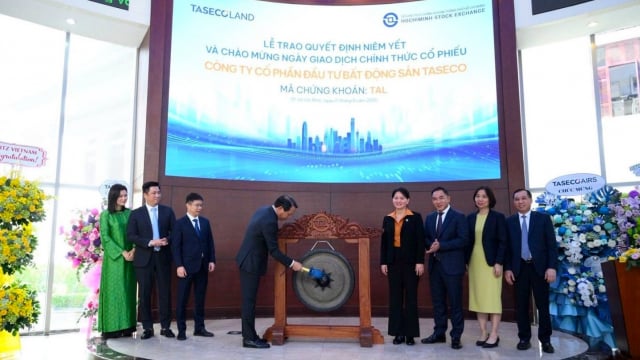Business
Booming condotel inventory puts hotel occupancy under pressure
The rapid growth of Airbnb and condotels is posing significant challenges to traditional hotel business in Vietnam.

The outlook of hotel business, in the view of Vietnam Hotel Association chairwoman Do Thi Hong Xoan, is getting way more challenging than ever before, in the face of rising hotel room inventory, and booming Airbnb and condotel models in the country.
“Never before has Vietnam’s hotel industry been facing such big challenges,” Xoan told the Hotel and Resort General Managers Conference held in Nha Trang last week.
According to Ha Van Sieu, vice chairman of Vietnam National Administration of Tourism, hotel room inventory has grown 12 per cent annually on average over the last decade.
By the end of last year, there were about 28,000 accommodation establishments nationwide, with a total 550,000 rooms available, doubling the figures in 2011.
A research by Savills Hotels Asia-Pacific reveals that nearly 16,000 hotel rooms of four and five-star standards were put into operation last year and additional 45,600 rooms are expected to be launched from now to 2022.
Mauro Gasparotti, director of Savills Hotels Asia Pacific, said Vietnam’s traditional hotel business would come under pressure caused by booming condotel development and Airbnb.
Despite controversy over its legitimacy and business prospect, condotels, which are a hybrid model of an apartment and hotel room, are gradually dominating the hospitality market as giant projects are coming online.
The Arena on Cam Ranh peninsula of Khanh Hoa province, for instance, will provide up to 5,000 condotel units, while 26 resorts in the province is currently offering 6,000 rooms in total. In Danang, Wyndham Soleil is expected to feature 2,000 condotels compared to total supply of 3,463 rooms available in 24 resorts.
Traditional hotels are also coming under pressure from the rapid growth of Airbnb. Savills Hotels reveals that the number of Airbnb rooms in Vietnam had skyrockted from 1,200 units in 2015 to 36,319 rooms last year.
Le Van Son, general manager of Liberty Central Nha Trang has felt these pressures more clearly than anyone else as his mid-sized hotel is now surrounded by a great number of condotel and hotel projects under construction.
“At this time last year, the hotel occupancy rate in Nha Trang attained some 60-70 per cent, but this year, it is lingering around 40 per cent. We’ve even seen some small-scale hotels cut their room prices in order to attract guests,” Son said.
Data provided by Fenady Uriarte, business development manager for Southeast Asia of market research company STR, showed that rising room inventory has begun to take its toll on the traditional hotel business in Vietnam.
The average occupancy rate plunged 7.1 per cent last year despite the growth of international arrivals and the increase of 3.3 per cent in hotel room rates.
The problem is getting more serious as the average hotel occupancy rate reported in March dropped by 10.8 per cent on-year as a result of the 6.3 per-cent fall in hotel bookings while room inventory rose by 5.1 per cent.
Son suggested a tight rule to be issued to manage the development of condotel projects, in a bid to ensure the accommodation quality and avoid unfair competition.
Kenneth Atkinson, executive chairman of Grant Thornton and vice chairman of the Vietnam Tourism Advisory Board, said that although condotels are adding rooms to the market, the model does come with a variety of problems.
Few international hotel management companies want to put their brand name in condotel projects as their quality is not up to their standards, he said.
Atkinson said hotels could fill up rooms in case the country grows it pulling power to international tourists by waivering visas for countries like Australia, New Zealand and the US, increasing budget for tourism promotion and improving its aviation infrastructure as many airports are currently overloaded.
He said that should these bottlenecks be removed, Vietnam could welcome up to 30 million international visitors after the next decade.
Grab launches hotel booking service in Vietnam
Michelin leads the smart mobility revolution with data and AI
Michelin is undergoing a strong transformation by applying AI and smart analytic, helping lead the smart, safe, and sustainable mobility revolution in the Industry 4.0 era.
LG Innotek secures $200 million IFC loan following revenue drop
LG Innotek Vietnam Hai Phong secured a $200 million IFC loan as revenue slows, aiming to expand camera module production while meeting sustainability targets.
Leading with empathy in Vietnam’s billion-dollar investment flows
For Koen Soenens, Sales and Marketing Director at DEEP C, empathy is a compass that guides major deals, the way a leader builds a team, and the ambition to create a sustainable industrial zone that carries a Vietnamese identity.
Taseco Land’s new logo marks a new growth trajectory
Taseco Land has shifted its listing to HOSE and introduced a new upward-pointing arrow logo - a visual statement of its strategy to raise capital, expand its land bank, and strengthen its standing in Vietnam’s real estate sector
SAP positions Vietnam as key R&D hub with €150 million investment
Located in the heart of Ho Chi Minh City, SAP Labs Vietnam is the second SAP Labs Network hub in Southeast Asia, following Singapore and is one of 20 countries that have SAP Labs globally.
Solar & Storage Live Vietnam returns, leading sustainability and innovation in energy sector
Solar & Storage Live Vietnam event has been running since 2017 and the 2025 edition will be the biggest yet.











































